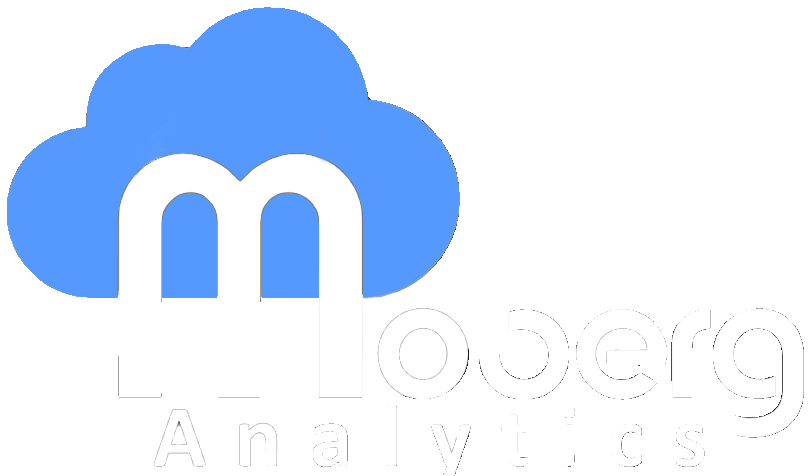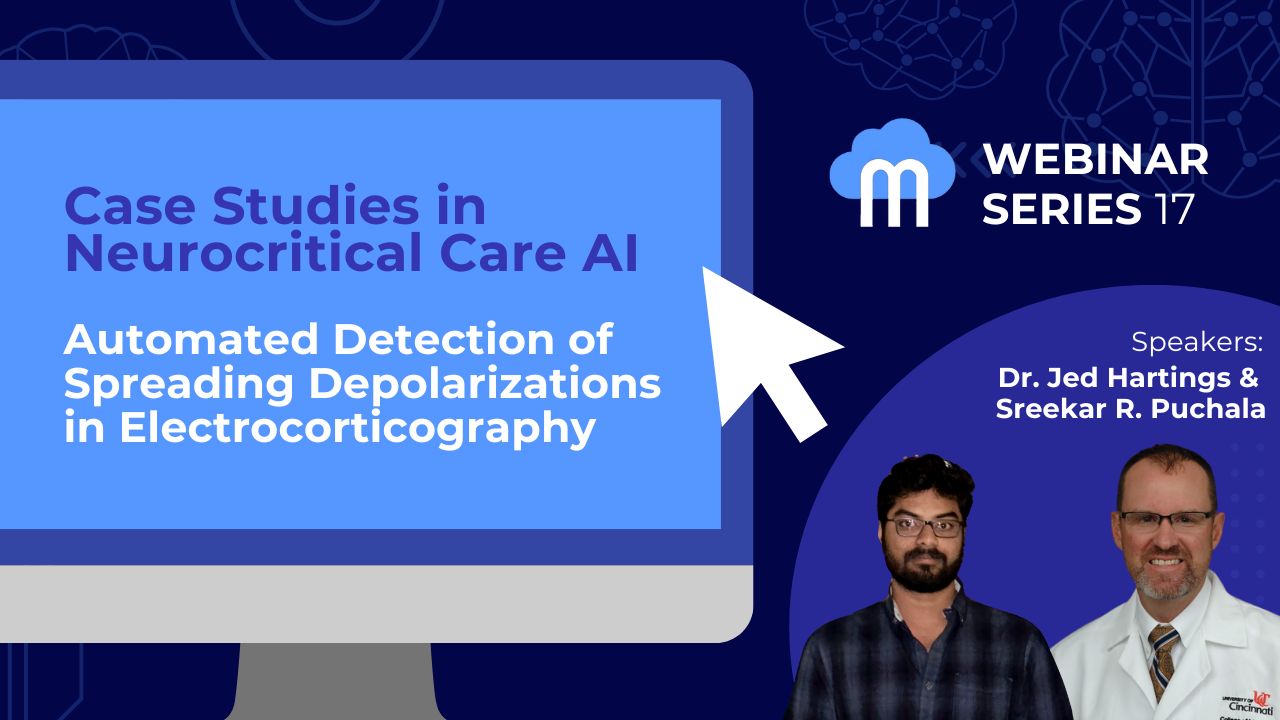RESOURCES
OUR WEBINAR
CASE STUDIES IN NEUROCRITICAL CARE AI

Our webinar series helps clinicians to harness the full potential of their neurocritical care data. Each session focuses on real-world case studies and provides practical tools to tackle neurocritical care challenges effectively.
- Free
- Monthly
- No experience necessary
- Foster a deep understanding of data handling techniques
- Engage in a collaborative learning environment
- Feel empowered to address your own data challenges
- Get access to sample code, Jupyter notebooks, and data
Our Past Webinars
Webinars

Body, Brain, Behavior: Non-Invasive Neurotechnologies for Peak Performance and Cerebral Health
59:19
WAVEFRONT: Noninvasive, Automated Detection of Cortical Spreading Depolarizations Using Scalp EEG
55:35
Predicting the Trajectory of ICP in TBI Patients: Evaluation of a Foundation Model for Time Series
52:41Xu Han, in collaboration with mentors at the University of Cincinnati, presents a new method for identifying subpeaks in intracranial pressure (ICP) waveforms in traumatic brain injury patients. His work improves visualization and computational efficiency, enabling real-time analysis and better patient monitoring.
Jed Hartings and Sreekar Puchala explore real-time, automated detection of spreading depolarizations in electrocorticography, highlighting the potential of algorithmic monitoring to enhance clinical adoption, reduce reliance on manual review, and offer new insights into SD waveforms through systematic, cloud-based analysis.
Jana Kainerstorfer explores non-invasive neurotechnologies for brain health, highlighting near-infrared optical imaging with EEG for disease monitoring, performance optimization, and applications in clinical and extreme environments.
Dr. Morteza Zabihi examines recent approaches developed for EEG analysis in critical care, discusses key challenges of applying machine learning in healthcare, and explores strategies for building trustworthy, robust AI models.
Dr. Alireza Chamanzar & John McNamee from Precision Neuroscopics discuss WAVEFRONT, allowing users to review detections, temporal and spatial signal patterns, propagation speed, and CSD frequency over time.
Florian van Leeuwen explores whether pre-trained (foundation) models, leveraging the power of transfer learning, hold the key to predicting intracranial pressure changes in TBI patients.
Tony Okeke explores innovative approaches to identifying artifacts in arterial blood pressure (ABP) data using a variety of machine learning techniques.
Jeanette Tas provides an overview of how unsupervised clustering, which uncovers new data patterns, has been applied to the field of neurocritical care.
Dr. Agnieszka Kazimierska and Cyprian Mataczyński showcase their deep learning-based approach for analyzing intracranial pressure (ICP) pulse waveform morphology and predicting potentially life-threatening episodes of elevated ICP.
Dr. Caffarelli discusses barriers to broad use of EEG for stroke screening and introduces the COIN index, providing an intuitive threshold-based readout of focal power suppression associated with stroke.
Dr. Balança & Dr. Ghibaudo explore how to visualize and analyze the interplay between markers of cortical injury such as cortical spreading depolarization and subcortical impairment such as heart rate and respiratory rate variability.
Dr. Amorim discusses his experience developing the International Cardiac Arrest Research (I-CARE) consortium, a multicenter EEG database of 1,000+ patients with coma post-cardiac arrest. He reviews challenges in EEG data harmonization and algorithm deployment as well as discuss the experience of releasing this dataset to the 2023 George B. Moody Physionet Challenge.
Shubhayu speaks on integrating heterogeneous medical record data to model how clinical course influences 6-month GOSE outcomes. Using a prospective TBI cohort, he trains recurrent neural networks to predict ordinal GOSE scores every 2 hours from a token-embedded time series, incorporating missing values. His approach converts large patient records into interpretable time series with minimal processing.
Dr. Vaz covers the return of intracranial beta oscillations and traveling waves with recovery from traumatic brain injury.
Ethan Moyer demonstrates a few techniques for predicting GOS-E outcomes on the BOOST II patients using Python.
Dr. Ramon Diaz-Arrastia speaks on his experience as a leader in TBI research and how analytics and big data can advance his work into the future.
Professor Ed Kim from Drexel University’s College of Computing and Informatics brings us up to speed on the background to modern AI, machine learning, and deep learning methods.
Professor Ed Kim from Drexel University’s College of Computing and Informatics brings us up to speed on the background to modern AI, machine learning, and deep learning methods.
Interested in being a speaker?
Would you like to be our webinar speaker for the month? We’d love to host you and bring attention to your research!















